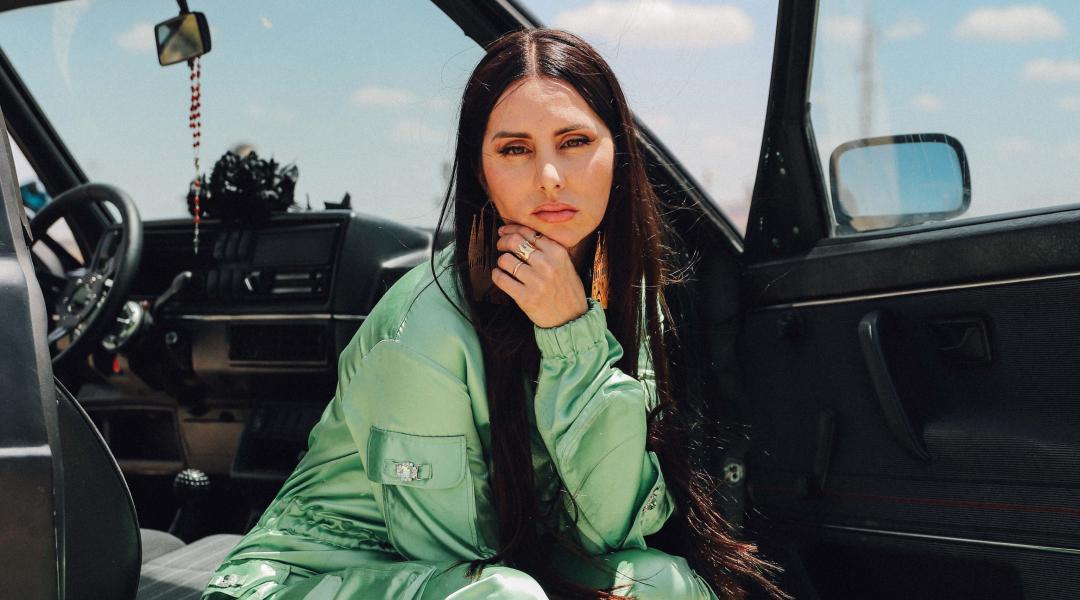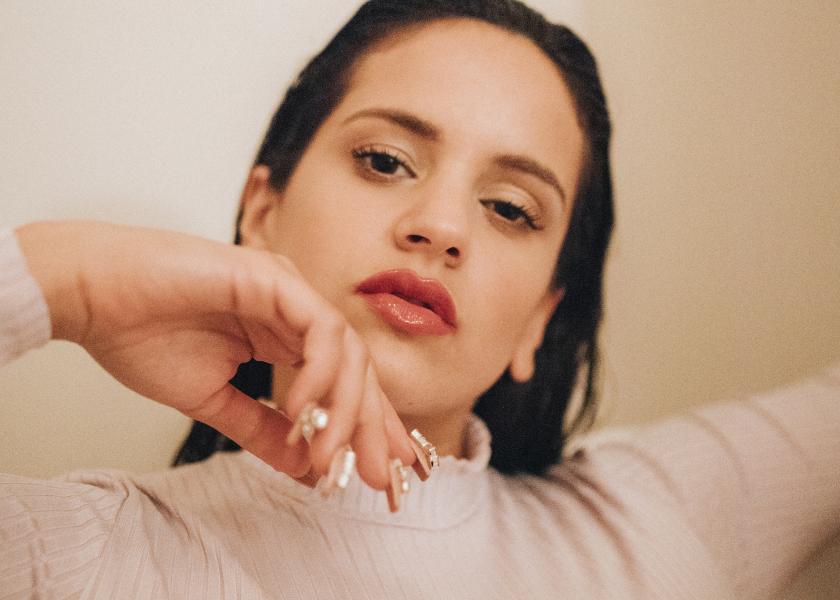Mala Rodríguez
Respect

When she started out, at the end of the 1990s, there weren’t many artists operating in the same field Mala Rodríguez was. However, that was never an obstacle, and today we can say that her way of mixing styles set a new standard and that she even anticipated the present state of pop music, where the Latin thing is now a key element. After almost five years without a new album, she has a few new singles out. 'Aguante' (‘Endurance’) is the most recent one.
Mala Rodríguez (Jerez de la Frontera, Cádiz, 1979) laughs when asked when there will be a new album. “I can’t wait for it to come out. I’ve been working on it all year. Hopefully God is listening to my prayers because I really want people to hear it.” So far, the road to that album is paved with singles: “Contigo” (With You), “Gitanas” (Gypsies), and “Agnus Dei”, the central theme of Vis a vis, a Spanish TV series she also has a cameo in. “This formula works really well for me. I prefer to put everything into one song and then go on to the next.”
Do you think a song released as a single has more visibility than a collection of songs in an album?
I do. It’s a different vibe. Now I just have to think about the 200 meters flat. I focus on pouring everything into each song and being pure fire. Every verse counts. It’s a different way of working and the motivation is different. And I’m delighted.
Would you define Aguante, your new single, as an empowerment anthem?
I don’t like the term “anthem” much. You should use it if it suits you, but “anthem”... I admire people who have endurance a lot. Acknowledging people with endurance is in our DNA. However, there’s also a toxic side to it, as it’s something that you learn, and that’s what I talk about in the song.
Do you think “to endure” is a tricky verb, depending on the case?
I don’t like it when people say “you have to carry on through because that’s just the way things are now”. Don’t tell me that anymore. You should put up to a certain point, and if you can’t any longer, provoke a change. I feel that we as women have always had a lot of shame, a lot of guilt, insecurity. And that’s because we’ve been taught to endure everything for love. And it’s not like that. It’s totally toxic. We have to work on our self-esteem and know our power, and I don’t only mean women, but all kinds of people liable to living a situation of abuse. It’s a matter of respect. If human beings were educated with and about respect, there would be no abusers of any kind.
Should we use the word “respect” more?
It’s a wonderful word. It can stand for many things that would give us very good results in a lot of ways. It would save us many problems. It’s a matter of education, of educating about the importance of respect.
Today, you could say you’re a pioneer. Did you feel alone when you started, being a woman and rapping?
The mainstream or the commercial has never been my thing, nor the most popular. I felt a lot like a weirdo. I remember a Grammy gala where, while I was rapping, I looked at the audience and saw it in their faces—they thought I was crazy. In spite of everything, the truth is I can’t complain, because the public has always given me a lot of love and respect. The public, and some very important people.
How do you see that time now?
I think people saw me as an odd and, at the same time, beautiful object.
“Obama including me in his playlists is one of the most incredible things that have ever happened to me”
And now Barack Obama includes your songs in his playlists…
Wow! That’s one of the most incredible things that have ever happened to me. I still can’t believe it. Obama is so loved… I’ve had the opportunity to live in San Diego, California for a year, and I could see how loved he is. Being on his playlist means a lot. Because what’s happening today in the White House is like one big reality show.
Is pop music changing thanks to the massive presence of Latin American sounds and fusion?
Absolutely. Thanks to the music and the language. Speaking Spanish is no longer seen as something for second-class citizens. And I think it all started with Daddy Yankee’s Gasolina. In 2005, I was in Japan and I went to a nightclub. They were playing Gasolina, and I said to myself, this man is huge, they’re playing his song in Tokyo! It blew my mind. I think it was the song that set the wheels in motion for this change that we are living. People want to dance. We need to celebrate, to feel united, we need that warmth.
What talent do you think best defines you?
I think it’s listening to my heart really closely when I write. I’m not too talented when it comes to singing or composing, but when inspiration comes to me, I’m always ready to tap into it and I let it take me over completely. When everything flows I feel enlightened, simple as that. That’s when I let everything out and feel most useful.
And the talent you most admire in other artists?
I like it when there is magic. I also admire people who know how to produce or play. A few days ago I saw a documentary about [flamenco legend] Camarón and oh my god, the stir he caused! He was a visionary like few, who knew how to cook five-star stews. It’s people who know how to get it right, who have a vision, that I fall in love with.
Do you think that today, more than ever, artists should speak out?
Of course. Think that you have an audience before you, and I’m not talking about me, of potentially millions of people, who pay for a ticket to see you. If you go out on stage and you don’t speak out, I mean, how could you not, when they’re your people!? They’re the ones who put you there. Furthermore, we can’t go around tiptoeing, just waiting to get paid, what is that? That would just be really sad. You have to be able to speak from your heart. That’s what I mean, I don’t mean to say each concert is a rally. I’m not a storyteller, I evoke. I tell you something to take you to another place, so that you feel what I feel. That’s what I intend with my music. But I’m not going to start scorching, if I wanted to do that I’d run for president. (Laughs).





